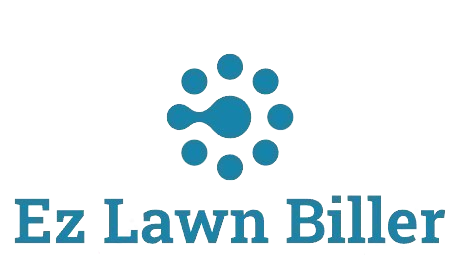Stay compliant with the best practices for lawn care pros to ensure your business thrives while adhering to regulations and customer expectations.
Stay Compliant: Best Practices for Lawn Care Pros
In the competitive world of lawn care, compliance is not just a regulatory necessity; it’s a hallmark of professionalism that sets your business apart. As a lawn care professional, understanding and adhering to industry regulations, best practices, and customer expectations is crucial for maintaining credibility and ensuring the longevity of your business. This article dives deep into best practices for compliance in lawn care, offering practical tips for staying on top of the ever-evolving landscape of regulations while also highlighting how effective tools like Lawn Biller Software can streamline your operations and help you stay organized.
Introduction
The lawn care industry is continually evolving, with new regulations and standards emerging regularly. Compliance is essential for many reasons, including legal protection, customer trust, and the overall success of your business. From safety regulations to environmental practices, lawn care professionals must navigate a complex landscape. This article will discuss essential compliance practices, share insights into the regulations that govern the lawn care industry, and provide tips for implementing best practices effectively.
Understanding Regulatory Compliance in Lawn Care
To begin our exploration of compliance, it’s essential to understand what regulatory compliance means within the lawn care industry. Regulatory compliance involves adhering to laws, regulations, and guidelines set by local, state, and federal governments. These regulations can cover various aspects, including pesticide application, waste disposal, and equipment safety.
For instance, the Environmental Protection Agency (EPA) provides guidelines on pesticide use to ensure safe application and to protect human health and the environment. Lawn care professionals must be familiar with these regulations to avoid penalties and maintain a safe working environment. Furthermore, understanding state-specific regulations is crucial, as these can vary significantly.
Consider using resources such as professional associations or governmental websites to keep updated on the regulatory compliance landscape. Engaging in ongoing education and training will also equip you with the knowledge to stay compliant.
Implementing Best Practices for Safety and Equipment
Safety is paramount in the lawn care industry, and adherence to safety regulations can prevent accidents and injuries in the workplace. Implementing best practices for equipment safety is essential.
First, ensure that all employees receive proper training on equipment usage and safety protocols. This training should include guidelines on wearing personal protective equipment (PPE), understanding equipment manuals, and following safety measures during operations.
Regular maintenance checks on equipment are also vital. A well-maintained machine not only performs better but also reduces the risk of accidents. Keeping records of maintenance and repairs can help demonstrate compliance during audits.
Additionally, consider investing in lawn service software like Lawn Biller Software that can assist you in tracking equipment usage and maintenance schedules. This will help you ensure compliance with equipment safety standards while also promoting efficient operations within your business.
Environmental Compliance and Sustainability Practices
In recent years, the push for sustainable lawn care practices has gained momentum. Environmental compliance goes beyond mere adherence to regulations; it encompasses the proactive measures lawn care professionals can take to minimize their ecological footprint.
One essential practice is proper pesticide management. Ensuring that pesticides are used responsibly and in accordance with EPA guidelines not only protects the environment but also enhances your business’s reputation.
Implementing integrated pest management (IPM) strategies can also help reduce chemical usage while effectively managing pests. This approach focuses on using a combination of techniques, including biological control, cultural practices, and chemical applications as a last resort.
Additionally, promoting water conservation techniques, such as efficient irrigation practices and drought-resistant landscaping, demonstrates your commitment to sustainability. Customers are increasingly seeking eco-friendly service providers, and showcasing your efforts in this area can set you apart in a competitive market.
Maintaining Accurate Records for Compliance
Accurate record-keeping is a crucial aspect of maintaining compliance in the lawn care industry. Records provide evidence of adherence to regulations, safety standards, and best practices.
Begin by organizing your records systematically. Maintain logs of pesticide applications, employee training sessions, equipment maintenance, and customer interactions. This not only helps in adhering to compliance but can also improve your operational efficiency.
Utilizing a lawn service app can greatly enhance your record-keeping capabilities. Software solutions, like Lawn Biller Software, enable you to manage customer information, service history, and billing in one place. This integration can simplify your documentation process, ensuring that all necessary records are readily available for audits or inspections.
Furthermore, regularly review your records to identify areas for improvement. This practice can help you stay proactive in compliance efforts and foster a culture of accountability within your business.
Engaging With Clients: Transparency and Communication
Engaging with clients is a vital aspect of running a successful lawn care business. Maintaining transparency and open channels of communication can enhance customer trust and satisfaction, which are critical components of compliance.
Inform your clients about the services you provide, including the products used and their environmental impacts. Providing this information can assist customers in making informed decisions while demonstrating your commitment to transparency.
Additionally, consider soliciting feedback from clients regarding your services. This practice not only fosters engagement but can also provide valuable insights into areas for improvement.
Using platforms like Lawn Biller Software can facilitate communication with clients by providing them with detailed invoices and service reports. This transparency can help build trust and ensure your customers feel confident in your services.
Staying Updated on Industry Trends and Regulations
The lawn care industry is constantly changing, and staying abreast of the latest trends and regulations is crucial for compliance. Regular participation in industry webinars, workshops, and conferences can provide valuable knowledge and insights.
Additionally, consider joining professional organizations that offer resources and networking opportunities. These associations often provide access to updates on regulatory changes and best practices. Engaging with peers in the industry can also lead to discussions that enhance your understanding of compliance challenges and solutions.
Using reliable lawn service software can help you stay organized and informed about tasks, deadlines, and important industry updates. For instance, Lawn Biller Software can assist in managing your operations while keeping you updated on compliance requirements.
Benefits of Compliance in Lawn Care
Adhering to compliance standards in lawn care offers numerous benefits that extend beyond avoiding legal penalties. Firstly, compliance enhances your reputation among clients and peers, establishing your business as a trustworthy and professional entity.
Secondly, operational efficiency often improves as best practices streamline processes. For instance, using lawn service software can automate billing and service tracking, freeing up time for more value-added activities.
Finally, compliance can lead to increased customer loyalty and satisfaction. Clients are more likely to return to a business that prioritizes safety, sustainability, and transparency in its operations. By committing to compliance, you’re not just fulfilling a legal obligation; you’re investing in the long-term success of your lawn care business.
Conclusion
In conclusion, staying compliant in the lawn care industry involves understanding and adhering to regulations while implementing best practices for safety, environmental sustainability, and client engagement.
By prioritizing compliance, you not only protect your business from legal repercussions but also enhance your reputation and operational efficiency. Embracing tools like Lawn Biller Software can simplify your compliance efforts, making it easier to manage records, billing, and client interactions.
As you continue your journey in the lawn care industry, remember that compliance is an ongoing commitment. Stay informed, engage with your clients, and adopt best practices to ensure your business thrives while meeting regulatory expectations. Embrace the challenge, and let compliance be a cornerstone of your success.




